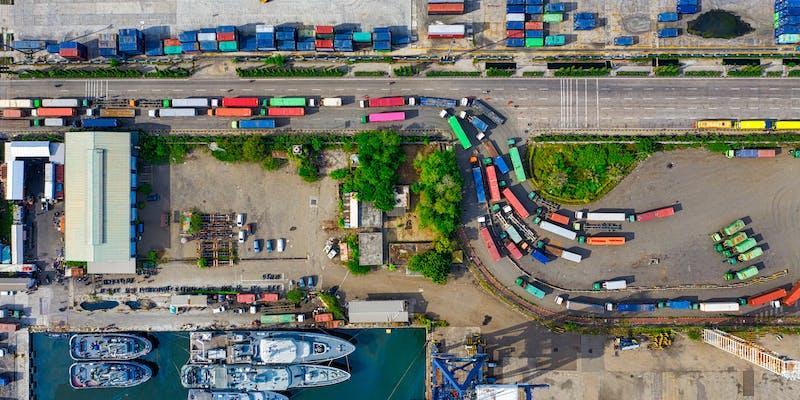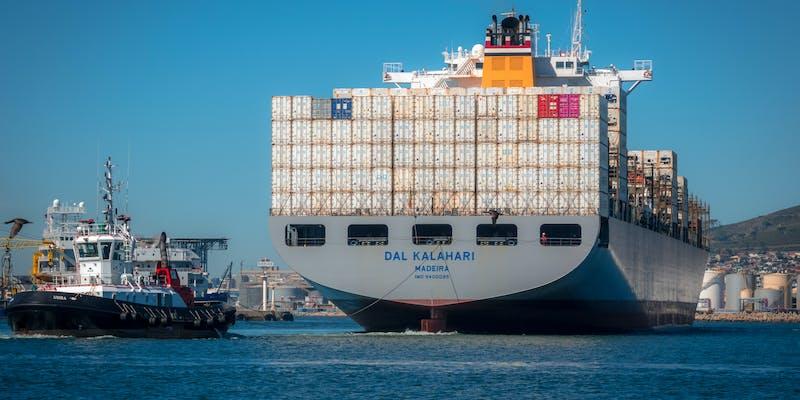DGFT: Steering India's Global Trade Dynamics and Policies
Jan 20, 2024 By Triston Martin
Directorate General of Foreign Trade is a central government organization in India that plays an integral role in formulating and managing the country’s foreign trade policy. So the design and adoption of export-import policies falls to DGFT which makes it one of the key players that influences India’s international trade status. It can be traced back to 1991 when there were great policy changes largely associated with the Liberalization Globalisation and Privatisation (LGP) agenda at that time. These reforms set the benchmark for transforming the Indian economy and its interactions with the global market.
Prior to 1991, the Directorate General of Foreign Trade DGFT was referred to as Chief Controller of Imports & Exports (CCI&E), which means that its main function then was to control and regulate foreign trade. However, the post-1990s, especially after India's economic liberalization programs, did not only mean a change from merely being involved with like control and compliance but also metamorphosed to a facilitator role wherein it could speak out language that embraced openness dealing particularly with international trade.
Key Functions of the DGFT

Implementing Foreign Trade Policy
DGFT is the highest body implementing India’s EXIM (Export-Import) Policy. This includes creating plans to increase exports, policy formulations for importers and exporters, and their adherence to international trade standards.
Promotion of Exports
One of the key responsibilities of DGFT is to facilitate India’s exports. This is done through various schemes, incentives, and support mechanisms that improve the international competitiveness of Indian products and services.
Regulatory Role
The India GDFT balances as an affixed body of the Ministry of Commerce and Industry Government of India and is the managerial agency responsible for managing foreign trade within this country. It issues licenses for exports and imports; it ensures that trade activities conform to national and international laws. DGFT has the power to ban, restrict, or control the activities of exporters and importers.
This regulatory role is crucial in maintaining the integrity of foreign trade and preventing illegal practices with respect to trade while ensuring conformance with international laws. The DGFT also has the discretionary power to allow free exports when these activities align with national trade goals and policies.
Maintaining a Comprehensive Trade Database
One of the important roles the Directorate General of Foreign Trade DGFT plays is maintaining a comprehensive and updated database containing all exporters as well as importers functioning in India. This data structure is amongst the most critical databases when it comes to purposes such as policy formulation, market analysis, and monitoring of foreign trade for India.
A Shift From Control to Facilitation of Policy
Post-liberalization, the role of DGFT has greatly changed. Instead of being a controlling and prohibitory regulating authority, it now promotes and facilitates foreign trade. This shift highlights India’s dedication to creating an atmosphere that promotes international trade.
Collaboration with Other Authorities
The DGFT is closely working with many other government bodies like the Customs Commissionerate, Directorate of Revenue Intelligence (DRI), Central Excise authorities, and Enforcement Directorate. This synergy guarantees a unified approach to domestic and foreign trade policies and their implementation.
International Trade Facilitation
The DGFT is instrumental in helping exporters get timely information on recent developments at the global level of trade, like those concerning WTO agreements, rules of origin, and anti-dumping, among others. This support is crucial for Indian enterprises to make well-informed decisions in a volatile global market.
Nationwide Presence
38 regional offices of DGFT are spread across India and headquartered in New Delhi. These offices are central to facilitating the implementation of policies adopted by DGFT at a regional level and assisting the trading community in local terms.
Assigning EIC Number
The Directorate General of Foreign Trade DGFT assigns a ten-digit unique identification number called the Exporter Importer Code, which is compulsory for all exporters and importers. This number is necessary while engaging in exports and imports, ensuring that trade occurs smoothly yet within set parameters.
Management of Transit Trade
The DGFT also regulates and allows the transshipment of goods from India to neighboring countries. This applies especially to the bilateral trade agreements where goods transit is always smooth and regulated since that impacts healthy international relations between countries.
Promotion of Regional Trade
Another vital function is advancing trade between India and the neighboring countries. Through the promotion of regional trade relations, DGFT makes further contributions to overall economic development and enhances India’s position in South Asian trade networks.

Control of DEPB Rates
The DGFT has an important function in regulating the rates per the DEPB scheme. This scheme offers a credit facility as an export incentive by the Government of India to offset duties on imported inputs used in manufacturing for exports.
Addressing Quality Complaints
Another important function is to deal with quality complaints from foreign buyers of Indian exports. In this way, Indian products can match international standards, and the credibility of Indian exports in the world market will also be maintained.
Formulation of ITC-HS Codes
The directorate general of foreign trade formulates or updates the Indian Trade Clarification (ITC) based on the Harmonized System (HS) of Coding. These codes are important because they help identify products to be exported or imported as part of international trade documentation and customs procedures.
All these functions indicate the DGFT’s broad mandate in handling and promoting foreign trade involving India. For individuals and firms engaged in international trade, knowing how the DGFT works is essential to make sense of export and import laws. Moreover, students and professionals, especially those preparing to attempt competitive exams like UPSC, must get a deep understanding of the DGFT’s responsibilities to understand how India engages in international trade.
Role in UPSC
Understanding the workings and importance of DGFT is important for those who aim to become UPSC aspirants. Often, such governmental bodies form part of the questions in IAS prelims. A detailed knowledge of the India DGFT’s role, history, and effects can enable aspirants to get a full picture of what India has been up to as far as the global economic framework is concerned in terms of trade relations. This knowledge is very important for the UPSC exams and for people who wish to become a part of India’s administrative machine.

Dec 22, 2023 Susan Kelly

Nov 07, 2022 Susan Kelly

Jan 06, 2023 Triston Martin

Jan 22, 2024 Susan Kelly

Mar 06, 2023 Susan Kelly

Jan 26, 2024 Triston Martin